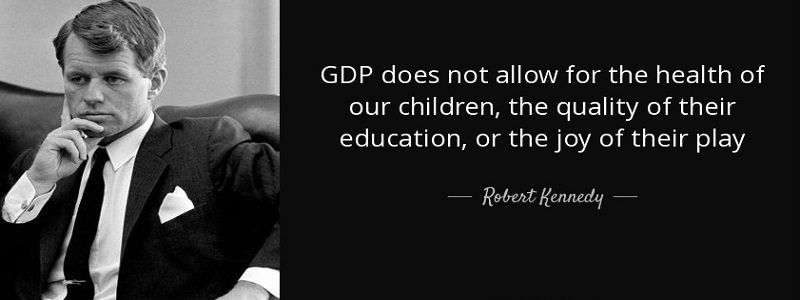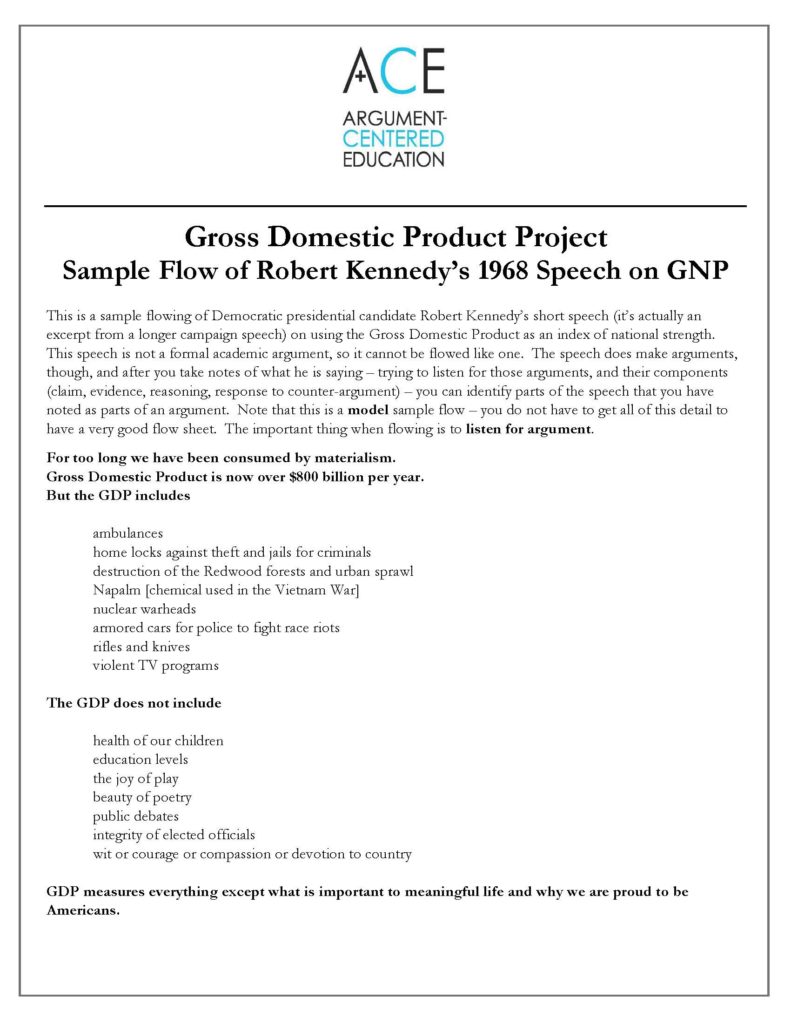
Tracking an Argument: Flowing RFK’s Speech on Our Use of the Gross Domestic Product
I recently collaborated with Jones College Prep AP Macroeconomics teacher Mike Borge on a short project he developed around the use of the gross domestic (or national) product as a key measurement of national strength. The component that we helped build out is the argument tracking function. Through this project, students learn how to convert straight-forward annotation into listening for and “flowing” argument.
The debatable issue for the project is:
Should the gross domestic product (GDP) be used as a key metric of American strength.
Method and Procedure
Mike Borge lays out these instructional steps for this short project.
(1)
Introduce how to “flow” and argument and why this is important as a skill (5 minutes)
(2)
Listen to Robert Kennedy’s speech in 1968 on the limits of GDP/GNP (clarify this distinction, but focus on GDP). Have students flow the argument based on what was stated.
(3)
Show sample flow of argument, re-listen to argument and re-flow and process the speech’s argument.

The key to this sample, and to the revised version of the flow that students are expected to produce, is processing the flow. The speech by Robert Kennedy, even though it is not a formal academic argument, is fairly easily assembled and understood as argumentation. The sample above includes one way to process the flow above into formal argumentation components.
Overall position
The Gross Domestic Product should be rejected as the primary measurement of American strength because it is thoroughly materialistic.
Argumentative Claim
Gross Domestic Product “measures everything, in short, except that which makes life worthwhile.”
The sample includes evidence and reasoning from the speech.
Argumentative Claim
Gross Domestic Product “can tell us everything about America except why we are proud that we are Americans.”
Again, the sample flow includes evidence and reasoning from the speech.
(4)
Group students into teams of 4-5 and ask each to summarize and refute one argument that Kennedy makes about the limitations of GNP/GDP as a statistic. Groups will create and post outlined arguments on Float to answer questions and give direction on argumentation. Students will outline refutation (“He says…but…”) and post in classroom. Students will create here what we call a “critical counter-argument” against the RFK argumentation on the GDP. Critical counter-arguments are distinguished from independent counter-arguments in that critical CAs critique and attempt to undermine the argument that they are responding to, whereas independent CAs are full arguments (with evidence and reasoning that is its own, independent of the evidence and reasoning of the argument that the CA is responding to). So here, students are making critical counter-arguments against some portion (some of the evidence and reasoning, or even the claim or position) of RFK’s argument
(5)
Conduct a gallery walk of the counter-arguments, culminating in vote on the strongest refutation with post-it notes. Discuss what makes these counter-arguments strong. Ask students to reflect on how this activity should cause us to think about answering our essential question in the project. Share out tangible steps (what data do we include? What non-economic measures of progress are most vital, etc.)?

